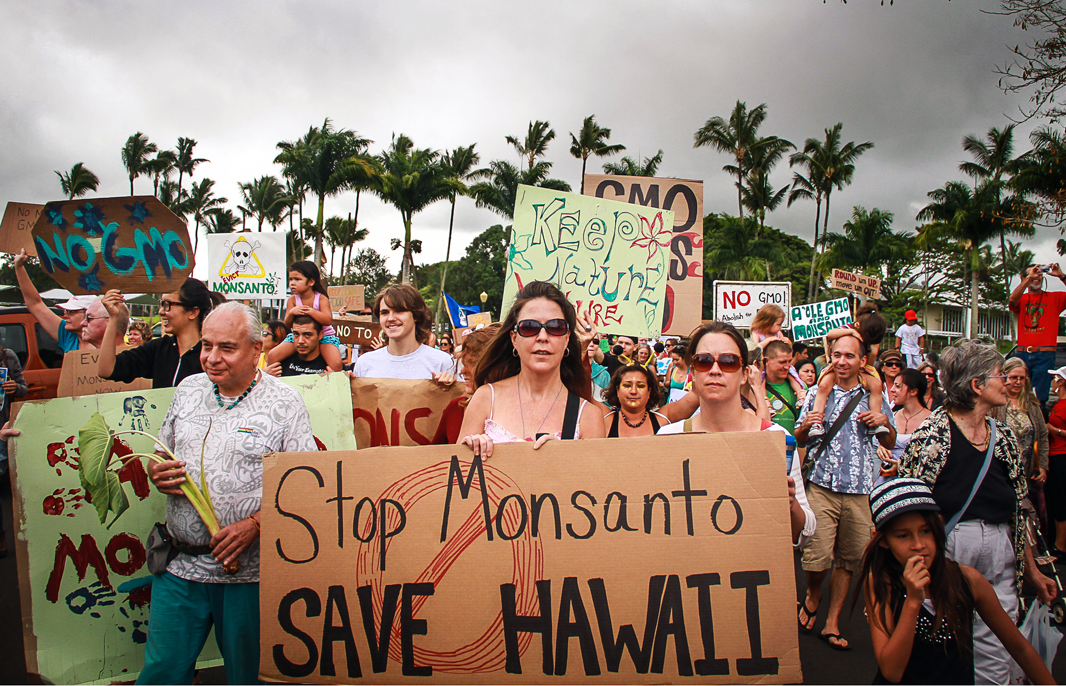If you’ve purchased corn at a grocery store, chances are it has hailed from a crop in Hawaii and its lifespan isn’t as “natural” as you may have hoped. About 90% of all corn grown in the U.S. is genetically engineered and the majority of it is being grown in Hawaii. It’s where four major agro-tech (agriculture technology) companies have large swaths of experimental farm land, in which they test different genetically engineered crops and how they stand up against pesticides. It’s the citizens of Hawaii who have witnessed the effects of these efforts in their hometowns near the experimental fields, which is exactly why Hawaii is at the forefront of the GMO debate at large.
Three attempts to regulate GMOs by counties in Hawaii – Kauai, Hawaii, and Maui – have all been overturned by federal judges. Maui went so far as to ban biotech crops, a law that was also overturned shortly after it was passed.
Now headed to the 9th US Circuit Court of Appeals, these rulings will have an impact on current and future GMO legislation. The 9th Circuit has jurisdiction over Washington, California and Oregon, meaning that if the ban is upheld, any other local or state level laws banning GMOs or requiring mandatory labeling will no longer be valid.
Something similar is happening in Washington, D.C.: The DARK Act, or Denying Americans the Right to Know, which passed the House of Representatives several months back. Should the bill, as it is written now, pass the Senate, it will effectively null and void any current GMO labeling laws states have already put in place.
In Kauai, the concern is very real. In the town of Waimea, many of these experimental fields are close to schools and hospitals, making the most vulnerable people exposed to an unknown level of chemicals every day when fields of crops get doused with dangerous herbicides -chemicals that those companies do not have to identify.

It’s places like Hawaii we should pay attention to, since GMO production has been going on for some time, and it’s where the effects of long-time GMO farming are felt.
It all started when growers realized that the climate and soil in Hawaii would allow for several growth seasons in a year and that GMO crops, which can take up to 12 seasons to develop, would grow much quicker there than on the mainland. Take into account the availability of land at the time and it’s clear why Hawaii was the prime location for agro-tech companies. Now, decades into the process, the debate rages on.
Experts are saying Hawaii is the leading sheep in the flock of the GMO fight. Let’s all hope things fall in favor of the citizens who reside there.
Want more health hacks and wellness insights? We got you covered. You'll also receive a code for 15% off your first order!

